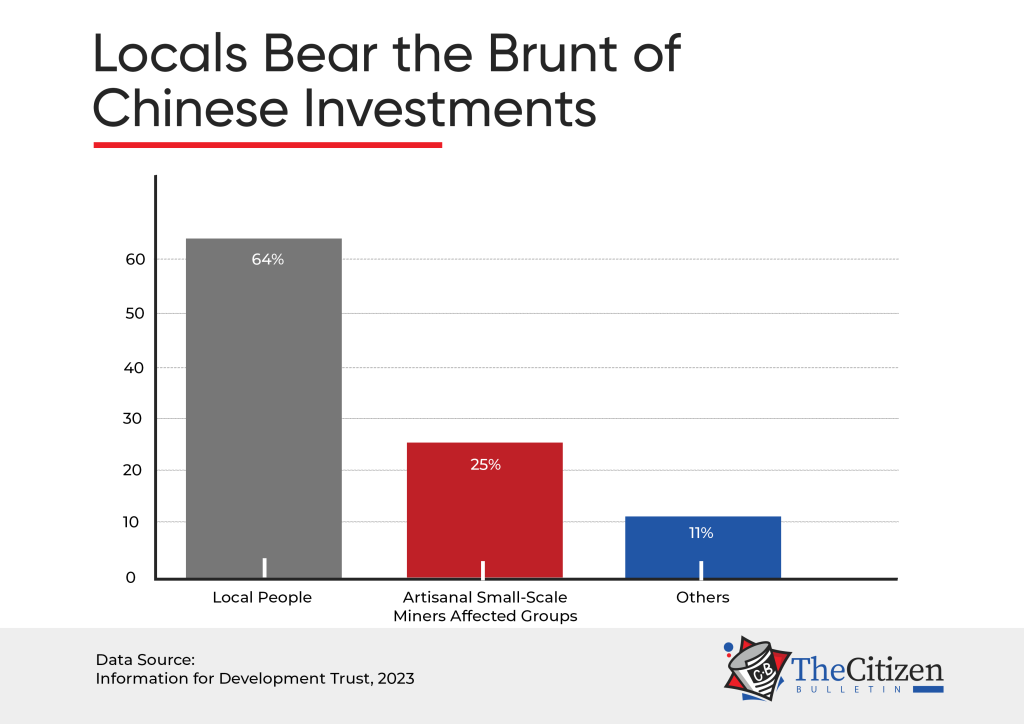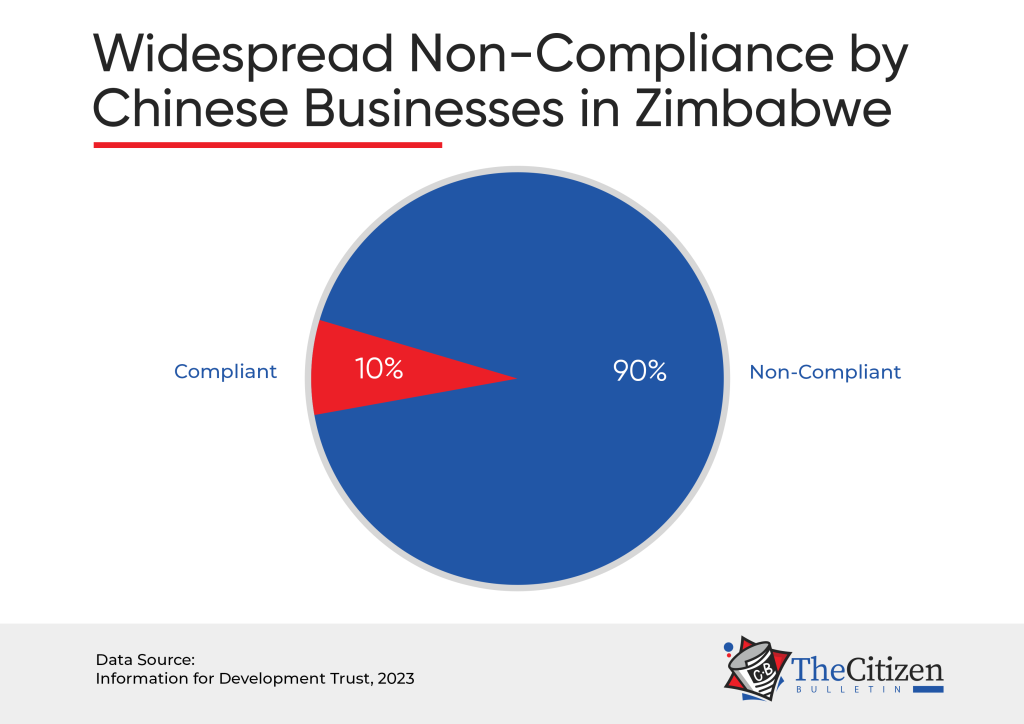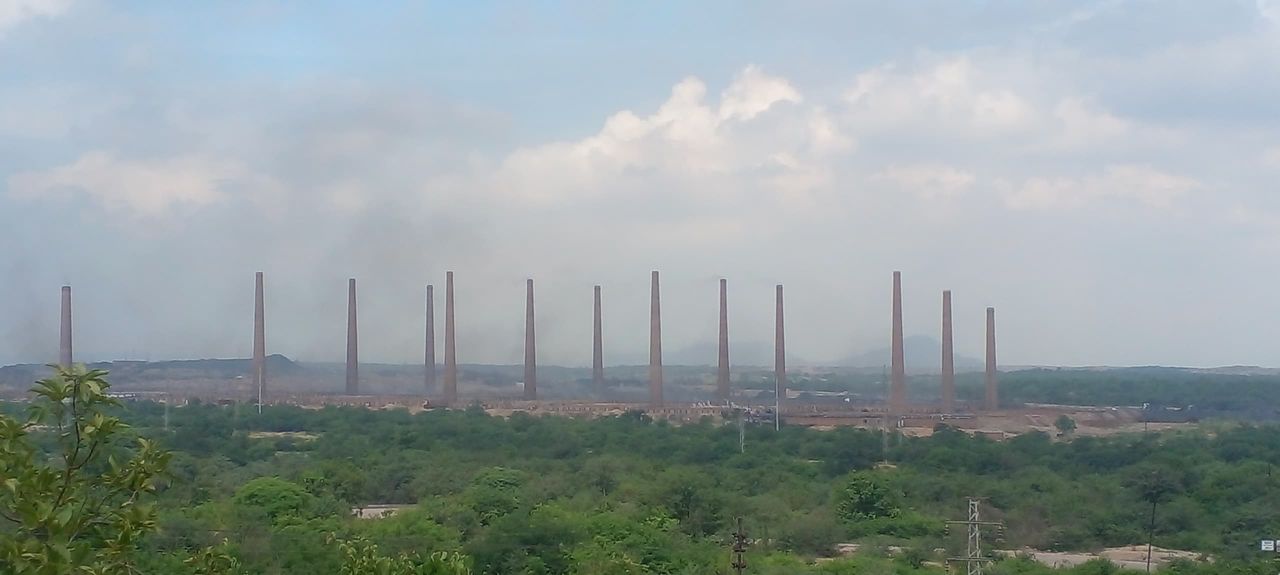Chinese mining in Matabeleland fills investors’ pockets but leaves locals with blood, sweat, and poverty.
Matabeleland’s mineral wealth was supposed to drive the local economy. Instead, Chinese mining investments have left communities grappling with environmental degradation, labor exploitation, and worsening health conditions.
While investors reap the rewards, locals are left breathing toxic dust, drinking contaminated water, and fighting for fair wages.
Our series, Exploited Ground, has uncovered the devastating impact of Chinese mining operations on communities across Matabeleland. Families who once relied on natural water sources now struggle as mining companies extract thousands of liters daily from rivers and boreholes, leaving entire villages without access to the precious liquid.
In Gwanda South, lithium mining has worsened an already dire situation, forcing residents to walk long distances in search of drinking water. According to a report by Information for Development Trust (IDT) titled Purses and Curses: Impact of Chinese Mining on Local Communities in Zimbabwe, 80% of those affected say Chinese investments have harmed their communities.
But water shortages are just the beginning. Our investigation found that Chinese mining firms have moved into communal lands without consultation or compensation. Villagers in affected areas say they were not informed of pending displacements, and once mining operations began, they had little recourse. Local councils and government agencies responsible for mining and land administration have largely ignored their grievances, allowing mining companies to continue unchecked.
Figures obtained by IDT in 2023 confirm that 64% of those negatively affected by Chinese mining operations are local people, while 25% are artisanal miners—once the backbone of local economies—who have seen their livelihoods vanish.

The environmental impact is accompanied by a public health crisis. Inhaling dust from mining sites has become a daily reality for many residents in Gwanda and Hwange, where respiratory illnesses are rising. Health workers report a spike in lung infections and other conditions, particularly among those living near lithium and coal mines.
The air pollution from coke plants in Hwange is another major concern, with toxic emissions lingering over nearby communities. Investigations by the Centre for Natural Resource Governance (CNRG) have documented how mining firms fail to manage waste properly, contaminating local water sources. Despite repeated complaints, residents and experts alike say authorities have been slow to act.
Human rights defender Farai Maguwu, Director of the Centre for Natural Resource Governance
YET, while communities suffer, the financial benefits of mining remain concentrated in the hands of a few. Recent data shows that 55% of the wealth generated from Chinese mining investments is controlled by Chinese nationals, while 21% flows to politicians. Meanwhile, just 9% of local people see any economic benefits.
These figures reinforce what local communities have long argued—while foreign firms and politically connected individuals profit, ordinary Zimbabweans are left behind.
For those employed in Chinese-run mines, conditions are far from the promises made when these companies first arrived. Our reporting has exposed widespread labor violations, with workers earning as little as $100 a month—far below Zimbabwe’s legal minimum wage of $372.75. Many companies evade labor laws by hiring workers informally, paying them in cash, and denying them contracts or benefits.
One of the most shocking cases uncovered during this series was at a Chinese mine in Hwange, where workers were crammed into overloaded tipper trucks—resulting in a fatal accident that killed two people and injured dozens more. Initially, the company promised to cover medical costs, but our investigation found that many injured workers were later abandoned, left to pay their own hospital bills.
A staggering 90% of Chinese businesses in Zimbabwe fail to comply with local environmental and labor laws, according to IDT’s research—the most comprehensive report on Chinese investments in Zimbabwe to date.

Our investigation has uncovered evidence of firms operating without registration, using political connections to evade scrutiny, and bypassing Environmental Impact Assessments (EIAs).
In one case, a Chinese-run gold mine in Zhombe was caught smuggling gold out of the country, dodging taxes and regulatory checks. The IDT report confirms that some companies manipulate paperwork to avoid oversight, making it difficult for regulators to track their activities.
As Zimbabwe’s economy faltered, the mining sector was expected to drive development. But in Matabeleland, our findings reveal a starkly different reality—contaminated water, shrinking farmland, exploited workers, and little oversight.
What happens when the minerals are gone? The scars left behind—poisoned rivers, abandoned pits, and a discarded workforce—already tell the story.
Exploited Ground, is an ongoing investigation into the cost of Chinese mining in Matabeleland. If you have been affected by Chinese mining investments, reach out to us at news@thecitizenbulletin.org or WhatsApp +263776446181.
The Citizen Bulletin is a hyperlocal newsroom that covers the greater region Matabeleland, Southwestern Zimbabwe. Join our WhatsApp Channel HERE to receive our hard-hitting reporting.

